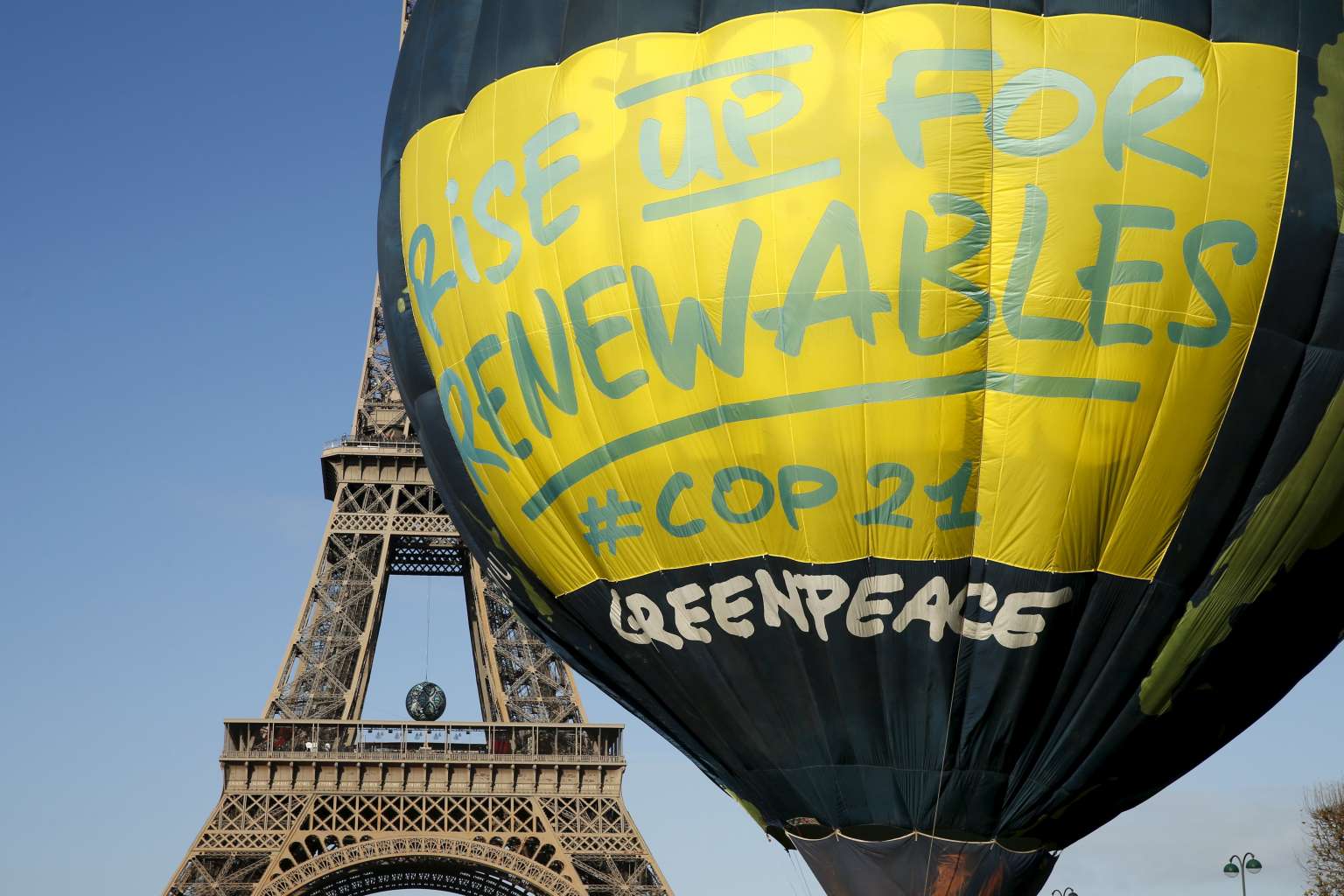What you should know about the Paris climate talks
Sign up now: Get ST's newsletters delivered to your inbox

Greenpeace activists fly a hot air balloon next to the Eiffel tower ahead of the 2015 Paris Climate Conference.
PHOTO: REUTERS
Follow topic:
World leaders from nearly 150 nations are attending a summit in Paris aimed at sealing a historic pact to curb global warming.
The United Nations Conference of Parties (COP21) summit kicked off on Monday (Nov 30) with nearly a fortnight of talks intended to end two decades of international bickering with a deal that would limit emissions of the greenhouse gases blamed for climate change.
Here's a quick look at why the summit is important and what's at stake:
Why is it important?
The summit is expected to launch a new process for all nations to combat climate change. A Paris agreement is not meant to be a one-shot deal. Instead, it is the start of a decades-long effort in which rich and poor nations progressively strengthen their climate actions to try to ensure the globe does not heat up beyond 2 deg C. This is the level that scientists say countries cannot bust - doing so would put us at risk of more extreme storms, droughts, floods and a faster sea-level rise.
An analysis of the current pledges puts the world on a path to a warming of 2.7 deg C, meaning that nations will have to ratchet up their climate plans quickly.
The UN and the French government are hoping to prevent a repeat of the 2009 Copenhagen climate conference, which failed to agree on a global deal because of deep mistrust between wealthy and poorer countries.
Since then, the UN has worked to rebuild trust and win agreement for a new pact that commits all nations to emissions cuts based on what they feel they can achieve.
What are the key issues?
Finance
Poorer countries want rich nations to make good on an earlier pledge to ensure at least US$100 billion (S$141 billion) will be available every year from 2020 to pay for projects and technology to cut emissions. Vulnerable nations also want access to more funds for adaptation to climate change.
So far, only US$62 billion was available by the end of last year, a UN-sponsored study shows.
The talks are seen by some poorer states as the last chance to sort this out. The European Union has also called on wealthy developing nations to help with financing. "There will be an expectation on developed economies to step up and show how they are scaling up their finances through time," said Mr Erwin Jackson, deputy chief executive officer of The Climate Institute in Sydney.
Failure to settle the climate cash issue could be a deal-breaker.
Ratcheting up national plans
National climate action plans submitted to the UN ahead of the Paris talks will not stop the world from warming beyond 2 deg C, the globally accepted limit.
The delegates in Paris need to agree on a mechanism to regularly review national actions and ratchet them up to ensure the world does not cook itself. But there is disagreement on the exact mechanism and the level of transparency in measuring, reporting and verifying national commitments.
Poorer nations want different rules for them while wealthier states prefer a more unified system.
The bottom line is this: Everyone wants to make sure there is no backsliding, but India, China and others will not agree on a monitoring system that they see as infringing on their sovereignty.
Loss and damage
Smaller island states and the least developed nations want cash for climate-related damage from storms, drought and floods beyond adaptation measures, such as building sea walls. This group of nations blames big polluting countries for changing the climate and want a mechanism to pay compensation.
In Paris, there is a demand to give permanence to the issue of loss and damage and the mechanism that deals with it. But rich nations will not discuss issues of compensation or liability.
Instead, the solution could be a disclaimer that puts aside the notion of liability and compensation in relation to the Paris agreement, but would not prejudice the rights of nations to file lawsuits in other contexts.

